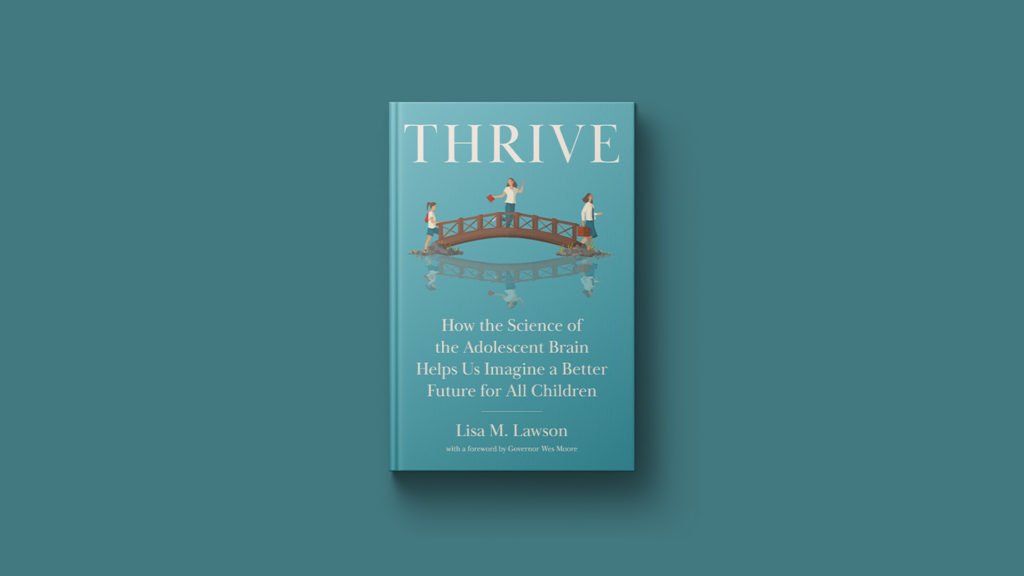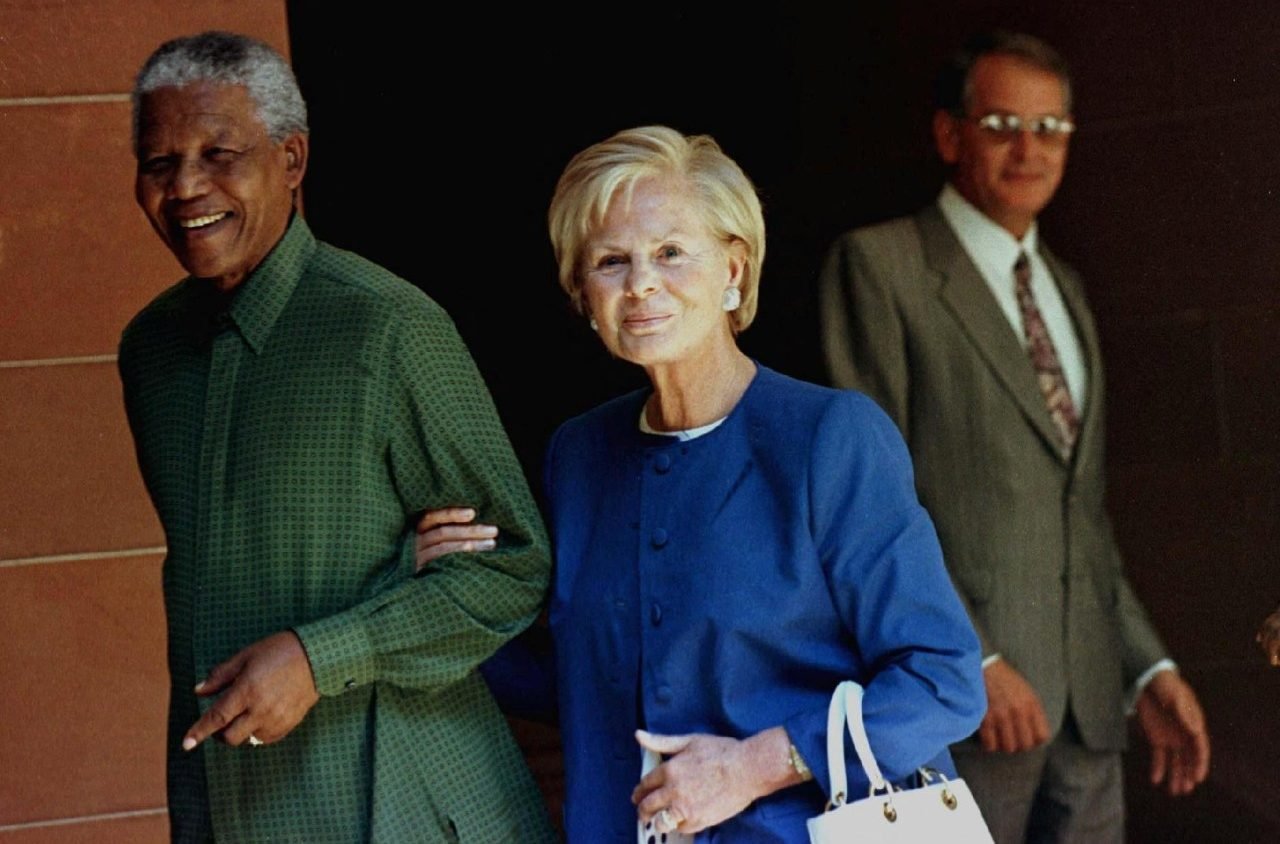The Annie E. Casey Foundation is perhaps best known for its work helping America’s youth. Lisa Lawson, the president and CEO, has done extensive research into the development of teenagers. She joined Geoff Bennett to discuss her new book, “Thrive: How the Science of the Adolescent Brain Helps Us Imagine a Better Future for All Children.”
Amna Nawaz:
The Annie E. Casey Foundation is perhaps best known for its work helping America’s youth.
Lisa Lawson, its president and CEO, has done extensive research into the development of teenagers, and that is the focus of her book, which she recently discussed with Geoff Bennett, entitled “Thrive: How the Science of the Adolescent Brain Helps Us Imagine a Better Future for All Children.”
Geoff Bennett:
Lisa Lawson, welcome to the “News Hour.”
Lisa Lawson, Author, “Thrive: How the Science of the Adolescent Brain Helps Us Imagine a Better Future for All Children”: Thank you for having me.
Geoff Bennett:
In this book “Thrive,” you make the case that adolescence is a period of profound brain growth, not a plateau. What does the latest science tell us about how adolescents develop and what they need the most in terms of support?
Lisa Lawson:
Well, adolescence is an amazing period of growth between roughly the ages of 14 to 24.
And in that decade-long journey, where young people are growing and developing to be adults, they are learning so many important skills that they will need at the end of that journey. They are learning cognitive skills, how to become critical thinkers. They’re learning judgment skills. They’re building their social and emotional skills.
So the science tells us that young people are in need of opportunities that help them build those skills in rich ways so that they will be prepared to be productive adults.
Geoff Bennett:
And you write that relationships, opportunities, and support are the three essentials every young person needs.
Why are they so foundational from a brain science perspective?
Lisa Lawson:
Well, they’re important because, first, relationships are the ways — that’s the context for young people to grow.
Although they are in a period where they are deeply interested in what their peers think about them, they still need the guidance and support of adults. And so that’s why relationship is so important, especially when young people make mistakes. They need adults to help them process what happened and figure out how to get back on the right track.
They need opportunities because it’s in the context of those opportunities, whether educational or employment opportunities, that’s how young people learn how to be resilient, how to be responsible. And if they don’t have those opportunities, then they can’t build those skills, and then supports, because we know that all young people need to have their basic needs met if they are going to achieve their highest potential.
And those supports make sure that they have stable housing, that they have got food to eat, that they have got all of their basic needs met. So it really is in the context of relationships through opportunities and with the supports that young people can thrive.
Geoff Bennett:
And how can our policy, our public systems better meet the needs of adolescents in particular?
Lisa Lawson:
Well, the book talks about the ways that the science of adolescence can help us serve young people better.
Too often, we design programs that work against what we know about the way young people develop, instead of with it. We know young people are motivated by rewards, not punishment. We know that they are keenly interested in what their peers think. We know that they learn by doing. And so if we can design policies and programs that work with the way young people are developing, we can set them up for success.
Simple ways to do that might be through apprenticeships. We know that young people have a lot they can learn in classrooms, but they want to work. They want to put that knowledge into practice. And so we work with a group called the Partnership to Advance Youth Apprenticeship. They’re helping 2,400 young people around the country get practical experience.
That works with how young people learn, not against it.
Geoff Bennett:
And what role can parents be, especially when the teenage years can be difficult at home sometimes?
Lisa Lawson:
Well, parents can be an important guardrail and guide for young people. And it’s really important that they practice empathy during these years.
Young people are often misunderstood. What people sometimes think of as defiance or disrespect is actually just development, that we need to understand this is just a phase of growth for young people. And the more that their parents can be empathetic with them and help them, particularly when they make a mistake, get back on track, they’re more likely to be successful in the long run.
Geoff Bennett:
The thing that I appreciated about this book is that it’s focused on solutions. Are there models already working in communities that other communities can emulate?
Lisa Lawson:
There are so many pilots under way that are using this science of adolescence that are getting amazing results.
I talked about apprenticeships and how young people who finish those programs are graduating and getting $50,000-plus jobs. We are seeing programs that work with young people who’ve been in the juvenile justice system and, rather than just focusing on punishment, give them rewards when they do positive things. They earn points for positive things.
And they are seeing 60-plus percent reductions in the young people who are sent back to court or who are violating their probation. So there are lots of projects under way that suggest, if we lean into the brain science, we can get much better outcomes for young people.
Geoff Bennett:
And you write that we all have a stake in adolescents.
What’s the message you want people to take away from this book?
Lisa Lawson:
Well, adolescence is a bridge between childhood and adulthood. And those supports and resources we talked about are really the cables that hold that bridge up.
But I hope all of us see ourselves as bridge-builders, as the important role that we can play in helping young people develop and grow. When young people thrive, we all thrive. And we want them to get to the end of adolescence, ready to start adulthood with hope and with confidence and with a sense of their own possibility in the world.
Geoff Bennett:
Be a bridge-builder.
Lisa Lawson:
Be a bridge-builder.
Geoff Bennett:
The book is “Thrive: How the Science of the Adolescent Brain Helps Us Imagine a Better Future for All Children.”
Lisa Lawson, it’s great to speak with you.
Lisa Lawson:
Thank you so much.




